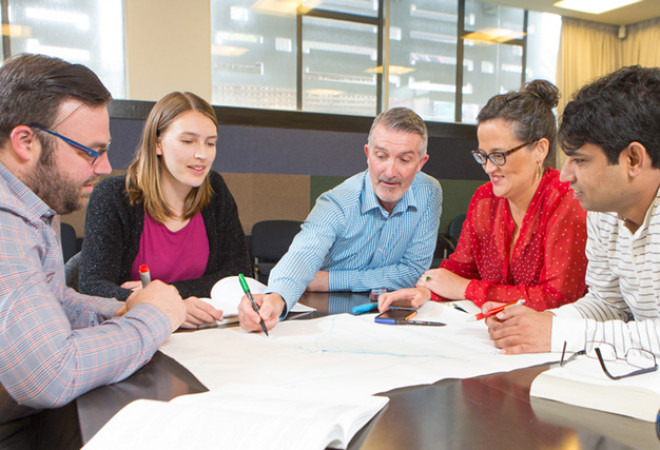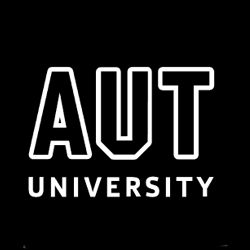
The Scholarship of Teaching and Learning – a Practical Introduction and Critique
Status
Completed: 2 August 2010
Project Details
A project, completed in 2010, to provide a short introduction to the Scholarship of Teaching and Learning (SoTL) to encourage practitioners to consider the concept and how it might benefit their learners. A collaboration of AUT University (lead organisation), Massey University and University of Canterbury.
Aims:
The main aims of the project were to:
- identify policies, provisions and programmes that encourage and support SoTL
- describe SOTL-related activities and products
- compare aspects of SoTL evident in different faculties, disciplines and professions
- identify the experiences and views of staff who were or were not currently engaged in SoTL activities
- review the criteria that might be used to evaluate the impact of SoTL initiatives on teaching and student learning.
Methodology:
The mixed methodology included:
- an extensive literature review
- survey questionnaire on teaching staff engagement with scholarship of teaching and learning
- interviews with teaching staff about the scholarship of teaching and learning and improving teaching practice.
Research questions:
- Can teaching be improved via the scholarship of teaching and learning to the point of excellence?
- If it can, how can engagement with the scholarship of teaching and learning be improved and if it cannot what else needs to be in place?
Team

Associate Professor Neil Haigh,
Auckland University of Technology (AUT)Key Findings
The key findings from the project included:
- The analysis of various high-level institutional planning documents indicates that all universities give due attention, as legislatively required, to the teaching-research nexus. However, they vary considerably in terms of the extent to which they explicitly associate scholarship and research with teaching and learning and consider that relationship a manifestation of the nexus. Our analysis revealed that statements about scholarship and research in this context vary considerably in their level of generality-specificity, comprehensiveness and detail.
- The results of the analysis are very encouraging as they indicate that New Zealand academics are already very active and productive in SoTL. Gaps in data did not allow us to establish whether there was a consistent trend of increasing numbers of SoTL products of this type, and this could be a focus for further investigation.
- The data provides a helpful snapshot of the place of SoTL in the lives of a sample of New Zealand university teachers, their aspirations in relation to future engagement in SoTL and a detailed account of factors that are likely to promote, support and reward that engagement. It emphasises the need for teachers to believe that scholarship in relation to teaching and learning is a beneficial, if not necessary, element of the professional practice of teaching. SoTL should not be a prescribed activity.
- The literature review and our own reflections indicated that a broad scope of indicators needs to be considered and we endorse the framework offered by Ciccone (2008). We also support the view that the primary indicator should be impact on student learning. As previously noted, we acknowledge that tracing and verifying the impact of SoTL-related initiatives and activities on student learning can be very challenging.
Key Recommendations
The project made the following recommendations for the three groups of SoTL stakeholders:
National Policy Makers (Government Bodies):
- Adopt the concepts (and terms) of scholarly teachers and scholars of teaching and learning when defining teachers who have the desirable attributes for teaching in higher education contexts and highlight the international currency and significance of these concepts.
- Emphasise that being a scholarly teacher and/or a scholar of teaching are ways of fulfilling the legislative mandate for an interrelationship between research (and learning) and teaching.
- Ensure that pedagogical research has equivalent status to all research on other phenomena.
- Acknowledge that SoTL activities, that do not meet the criteria that define research, are likely to be inherently valuable, not only for the individual teacher and their students, but to the wider community of tertiary teachers. They are important activities that are essential to an agenda of continuing enhancement of teaching and learning in higher education contexts.
- Recognise the priority need for SoTL work that addresses learning and teaching matters distinctive to New Zealand higher education contexts.
- Ensure that provisions are in place and maintained to ensure effective promotion, support and reward for SoTL (e.g. Ako Aotearoa; National Teaching Excellence Awards; funding sources for SoTL).
- Ako Aotearoa to actively promote SoTL; and become a repository of resources that can assist teachers to understand the concept, its implications for their teaching and to engage in SoTL activities.
- Ako Aotearoa to provide a repository of resources that will assist institutional and faculty leaders to select and plan initiatives that will support SoTL.
Discipline and Profession Groups:
- Recognise and promote the value of building, though SoTL, a discipline/profession relevant learning and teaching knowledge base.
- Maintain familiarity with initiatives within the discipline internationally to support SoTL and look for opportunities to establish international collaborations.
- Confirm the (equivalent) status pedagogical research in the discipline.
- Endorse, establish, publicise and support a variety of fora and publications for the dissemination of SoTL outcomes.
- Where appropriate, establish mentor/coaching schemes for teachers getting underway with SoTL. These may involve links with experienced educational researchers/scholars of teaching and learning.
- Make use of the infrastructure provided by Ako Aotearoa to facilitate discipline and profession focused SoTL activities.
Institutional and Faculty Academic Leaders:
- The recommendations above are all relevant to Institutional and Faculty academic leaders.
- Clarify (though dialogue) the meanings that are to be associated with the concepts of scholarly teaching and the scholarship of teaching and learning, and the consequential implications for areas of policy such as research/scholarship, teaching – research nexus, professional development, career-related decision-making (appointment, promotion, performance goal-setting and review, rewards).
- Using framework and methods such as those used in this project, undertake periodic reviews of the actual status of SoTL to determine whether rhetoric and reality align.
- Seek information about the initiatives that can be taken to promote, support and reward SoTL at institutional and faculty levels.
- Identify appropriate ‘impact criteria’ for particular initiatives and systematically monitor impacts.
A summary report prepared by Neil Haigh.
(PDF, 680 KB, 20-pages).
- 8 August 2010
A research report prepared by Peter Gossman, Neil Haigh and Xiaomin Jiao.
(PDF, 1.4 MB, 100-pages).
- 8 August 2009